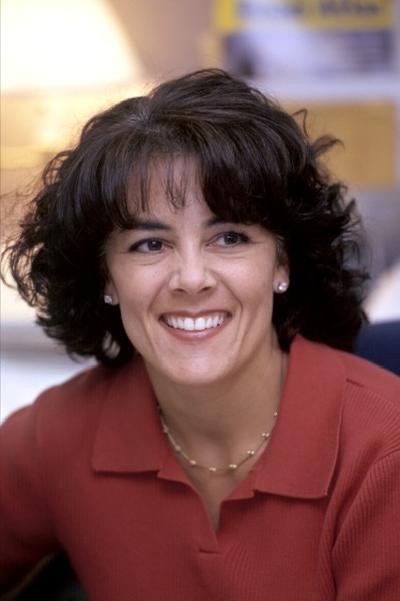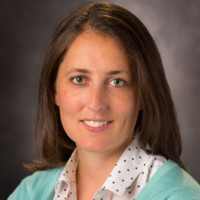Advances in biomarker discovery are helping scientists learn more about the drivers that cause many types of cancers to grow. Neurotrophic tyrosine receptor kinase (NTRK) gene fusions are an actionable biomarker for cancer therapy found infrequently in common tumor types but found frequently in certain rare tumors.
To help us understand more about this topic, we recently hosted a LinkedIn Live discussion with Susan Spinosa, President of NTRKers, a global, non-profit patient group, founded by patients and loved ones living with NTRK gene fusion cancer. Susan was joined by NTRKers Vice President, Sandra Montez, Research Nurse RN.
Susan was diagnosed with thyroid (follicular variant of papillary) cancer in 2004. She progressed through multiple cancer treatments until it was discovered she had NTRK positive thyroid cancer in 2018 through genomic sequencing. In 2019 she founded the NTRK Support Group on Facebook which has grown to become a global, non-profit group of patients and loved ones living with NTRK gene fusion cancer, and supported by leading clinical experts.
Sandra is an experienced Research Nurse Manager who has worked in research in Australia, the UK and the United States. She has extensive experience across all Phases of clinical trials, but has a focus on early drug development and Phase I clinical trials and specifically in genomically matched clinical trials. Sandra has spent the last eight years as a manager at the University of Texas MD Anderson Cancer Center Department for Investigational Cancer Therapeutics (Phase I Program).
In this post, we share some highlights from our fascinating conversation with Susan and Sandra. The full video replay of the conversation is available on our YouTube channel.
We began our discussion by asking Susan to share her journey from diagnosis with thyroid cancer in 2004 to 2017 when she was diagnosed with NTRK.
We learned that Susan was originally diagnosed with a common type of papillary thyroid cancer that has a high cure rate. Unfortunately, four years after receiving her initial diagnosis, her tumor marker went up and she was diagnosed with a recurrence of thyroid cancer, as well as a tumor in her cervical spine. She was treated with radioactive iodine, which is the traditional treatment for thyroid cancer.
Susan’s primary concern was some nodules that grew on her bronchial branch, which prompted her to seek a second opinion. Because her cancer was getting more aggressive, the doctor recommended genomic testing before giving her any more treatments. Up to this point, Susan had repeatedly asked her primary treating physician to test her for BRAF mutation, a common thyroid cancer biomarker. Only after seeking a second opinion did she receive genomic testing.
The result came back positive for NTRK. Her doctor told her, “Hey, I have good news and bad news. The good news is you have NTRK fusion cancer which is rare, but there's a pill that will work very well.”
Susan started a clinical trial in August 2018, and has been doing well on it.
At the time of Susan's diagnosis, there was little information available about NTRK. “Luckily, we now have the Internet,” she told us. “But even that was limited and I searched high and low on social media. I was lucky enough to find about a dozen other people all over, because they can be anywhere. I messaged them on Facebook and I said I want to connect with other people and they replied back immediately, saying I'm so glad you found us”
Susan’s next step was to set up an NTRK specific Facebook group - the first of its kind. Although she already belonged to online thyroid groups, she explained “because NTRK is found in different sites within your body, not just thyroid cancer, you really lose your specific cancer type relationships. You need to expand that and connect with people who are the same as you.”
The experience of cancer would have been even more stressful without this online community, she explained. “You know, you're taking a rare drug and you're so spread out across the globe. You're so isolated. And I always say it's a lonely journey. I don't feel lonely anymore because I feel like I have tons of friends all over the world now that I can relate to.”
Susan was also keen to emphasise the benefits of the online community for parents of children with NTRK. “A lot of these parents didn't even realise what their child would be going through and how they would feel on these drugs,” she explained. “So now these parents can relate to their children better and understand what they're going through. I feel like we're helping both parents, caregivers and the patient.”
We then heard from Sandra, who was working in Phase 1 drug development at MD Anderson, which is the world's largest drug development trial unit. In 2014, a small biotech company was trying to run a clinical trial focused on NTRK, but no one really knew anything about it. Quite by chance, the first patient was recruited to the trial. A completely unexpected event occurred at the six-week scan mark. PET scan results showed that the patient's cancer was no longer active.
“And we were completely shocked and flabbergasted,” Sandra told us, “because it's something that you don't really see in advanced cancer patients. And then the same thing happened another three or four times with the next few patients we had been lucky enough to enroll. And so that then led to another Phase 2 clinical trial, having this small subset of patients. At the time it was nearly 100% response rate, which is absolutely phenomenal. And because we had such a niche market of patients, we really became the world experts on NTRK fusion cancer.”
Sandra went on to explain that not only were these patients cancers responding, but the patients were feeling so much better. “They were able to go back to work, they were able to enjoy time with their families, do all the things that they weren't able to do beforehand,” she told us.
In response to Sandra's point about recruiting patients from a small subset, we asked how participants were selected. “Pretty much through sheer tenacity,” she answered. “Unfortunately, when most patients seek out a Phase 1 clinical trial, their cancer is incurable. And so it's it's a difficult area to work in. And when you see somebody's cancer on a scan, basically all the activity disappear, you want to replicate that as many times as possible.”
Given her life-changing experience with genomic testing, we asked Susan why she thinks so few tests are being carried out. “I think it's a combination of education in the medical world and also the patient world,” she answered. “We see some doctors not ordering genomic testing but the other hurdle that we have, especially in the United States, is coverage. And the tests were, especially when I was diagnosed, very expensive. They're coming down now. The hope is everyone gets genomic testing when they're diagnosed with cancer because it can change your life, but it's not happening. And that's our goal to educate and raise awareness of this.”
In response to this same question, Sandra cautioned against making assumptions about patients, “especially if you're from a country where genomic testing might not be funded or reimbursed or, you make an assumption that somebody might not want to participate in a clinical trial based on their age, financial status, whatever it may be.”
“You know, we're all human. And even myself as a health practitioner, sometimes I make assumptions about patients and I really have to peel that back on myself,” she said. “But I always think back to the fact that everything is the patient's choice. As a practitioner, your job is to provide patients with information, and it's the patient's choice what path they take.”
On the topic of self-advocacy for genomic testing, Sandra went on to say, “If you haven't been offered that choice and if you're not getting the answers that you want from your physician, there is no reason why you can't seek out somebody else's opinion. So often I see patients that are worried about offending their physician but really, patients need to advocate for themselves and not be afraid to do so.”
Susan agreed that it’s important patients speak up and advocate for themselves. “Don't be afraid to ask questions. And if you don't feel comfortable, go for that second opinion, even if it's to make sure that you have that peace of mind that you're in the right hands. I did multiple second opinions even before I got diagnosed with NTRK and for me, it was just the comfort of knowing that I was doing the right thing. It's your life, it's your family, it's everything.”
Sandra then underlined the importance of the relationship between a patient and their oncologist. “It's really important that you have trust and work together,” she said. “So make sure that like with any other aspect of your life, you surround yourself with people that have a common goal and don't be afraid to ask questions and to make sure that they're fully understood. Don't let assumptions be made based on your age, your race, your gender, whether or not you have children, whatever it may be. Everybody's acceptability for things like quality of life and how much treatment they want to have is their own decision. And that needs to be respected.”
Throughout our conversation both Susan and Sandra sounded notes of hope.
“I try to stay as hopeful as I can,” said Susan. “ Being a patient, it's always in the back of your mind, going in for that test, going in for the blood work, going in for the scan. I've been on this drug for four-plus years, which iswonderful. There are people that are on it longer. But I also think the medical world is advancing so much with newer drugs. They're looking at mutations that are coming up or resistant mutations. So there's a pipeline. These companies are just developing these drugs. So, yes, I have hope that if this ever stops working, then I have the next game plan.”
“Before I started working in oncology, I was a trauma ICU nurse for nearly a decade,” Sandra said. “I've been in oncology for over a decade now. And what I will say is that I think in my lifetime I will have to go back to intensive care because I won't be needed in oncology any longer. And I do believe that that will happen in my lifetime. I have huge hope. This is the decade for oncology, and we will have an answer. I'm extremely confident.”
Learn more at: https://ntrkers.org



✕